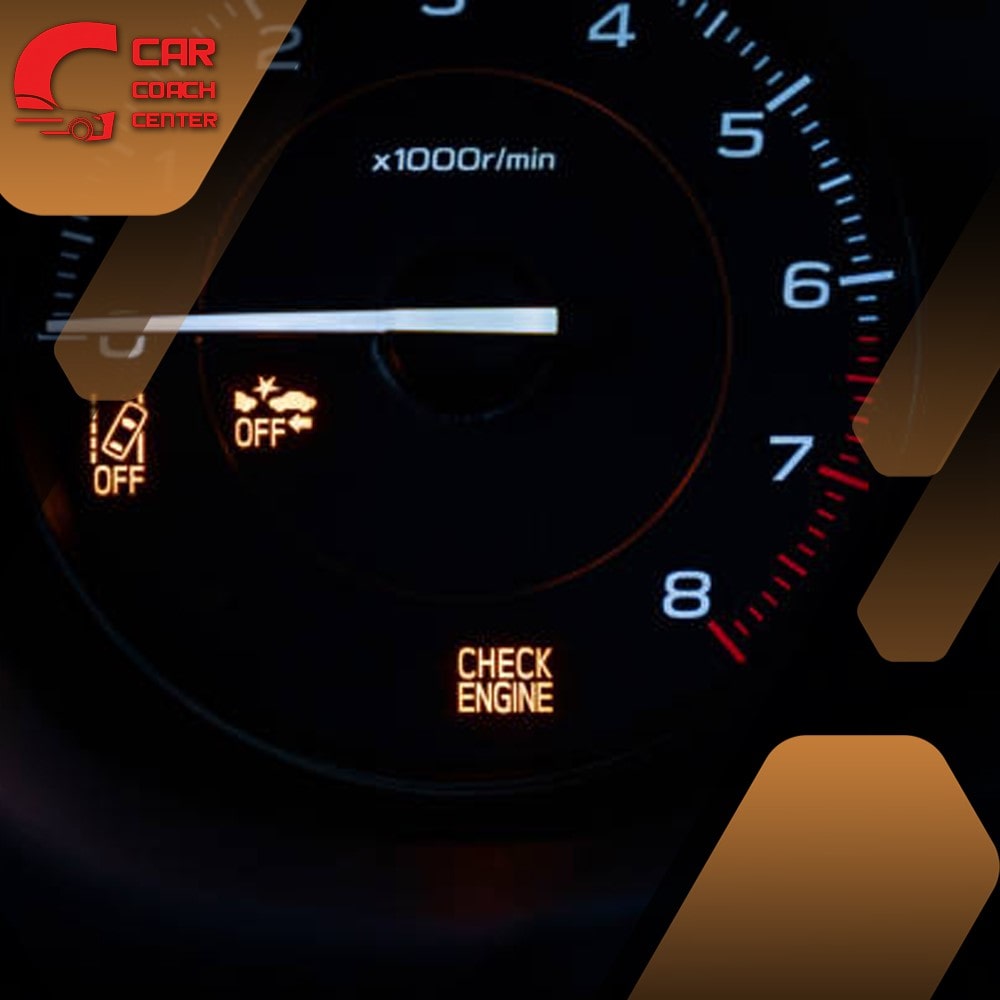Dodge Avenger Overheating
Introduction:
Welcome to our comprehensive guide on Dodge Avenger overheating. In this article, we will explore the common causes behind overheating issues, provide a step-by-step diagnostic process, and offer effective solutions to keep your Dodge Avenger running smoothly. At CarCoachCenter.com, we are committed to providing expert automotive guidance and expertise to help you resolve car problems.
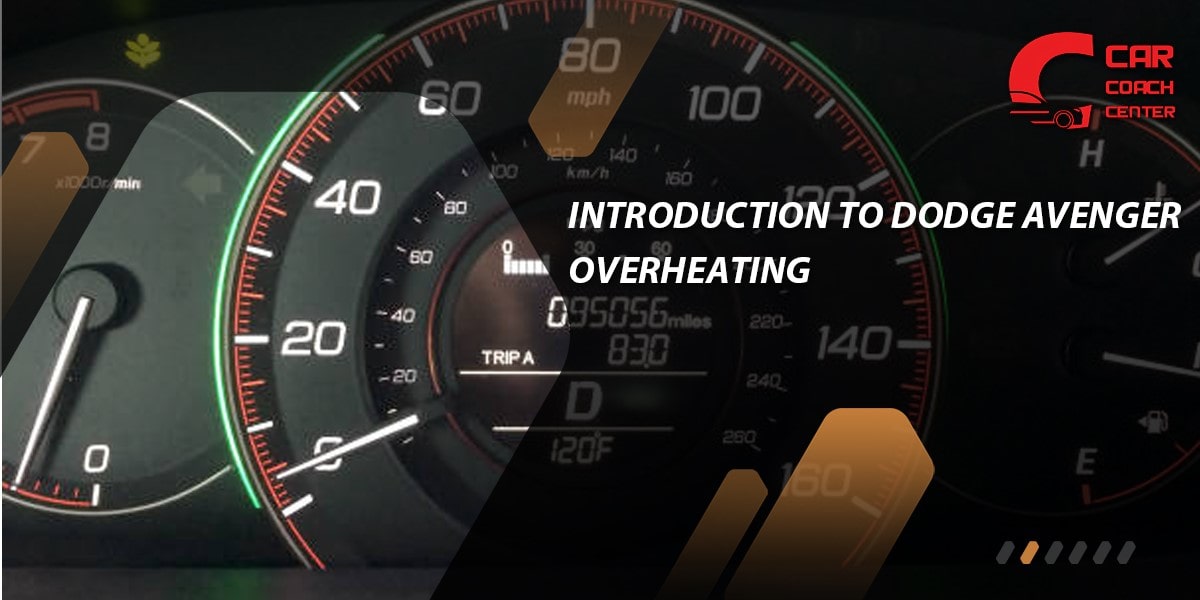
Introduction to Dodge Avenger Overheating
Understanding the Importance of Cooling System
The cooling system plays a vital role in maintaining the optimal temperature of your Dodge Avenger’s engine. It prevents overheating and ensures efficient performance.
Common Causes of Overheating in Dodge Avenger
. Insufficient Coolant: Low coolant levels or coolant leaks can lead to overheating.
. Malfunctioning Thermostat: A faulty thermostat can disrupt the cooling system’s operation.
. Faulty Water Pump: A malfunctioning water pump can result in inadequate coolant circulation.
. Cooling Fan Issues: Malfunctioning electric or mechanical fans can cause inadequate airflow.
. Radiator Problems: Clogged or damaged radiators can hinder heat dissipation.
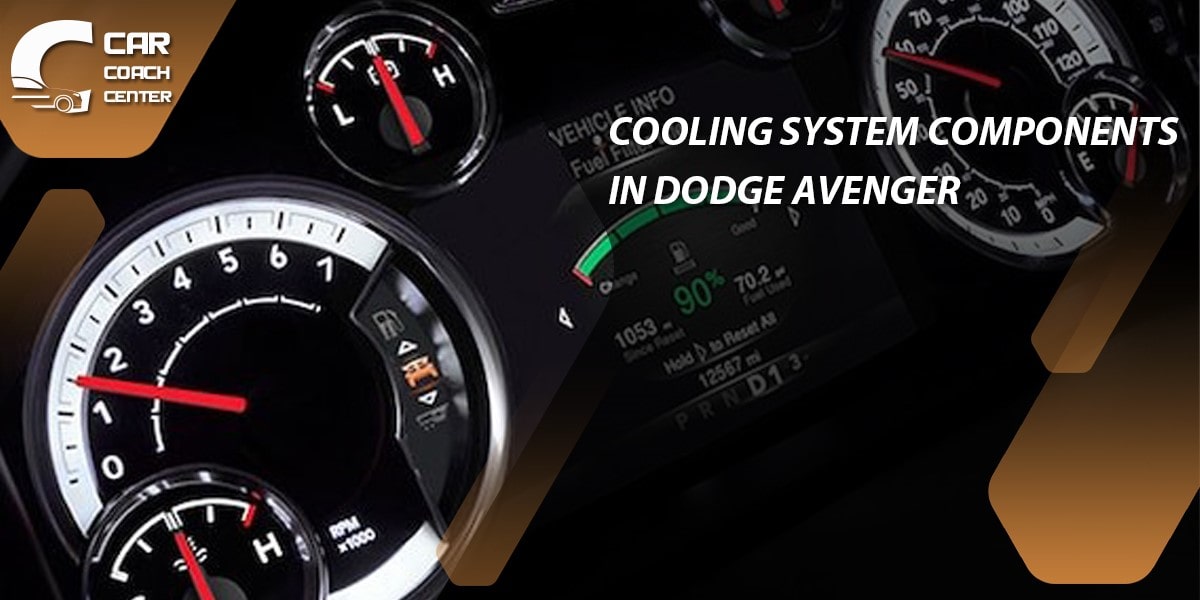
Cooling System Components in Dodge Avenger
Radiator and Cooling Fan
The radiator and cooling fan work together to dissipate heat from the coolant passing through the system. Regular maintenance and inspection of these components are crucial.
Thermostat and Water Pump
The thermostat regulates the engine’s temperature, while the water pump ensures proper coolant circulation. Understanding their functions and performing routine checks are essential.
Hoses and Coolant Reservoir
The hoses carry coolant between different components, while the coolant reservoir stores excess coolant. Regular inspection of hoses and proper reservoir maintenance is vital.
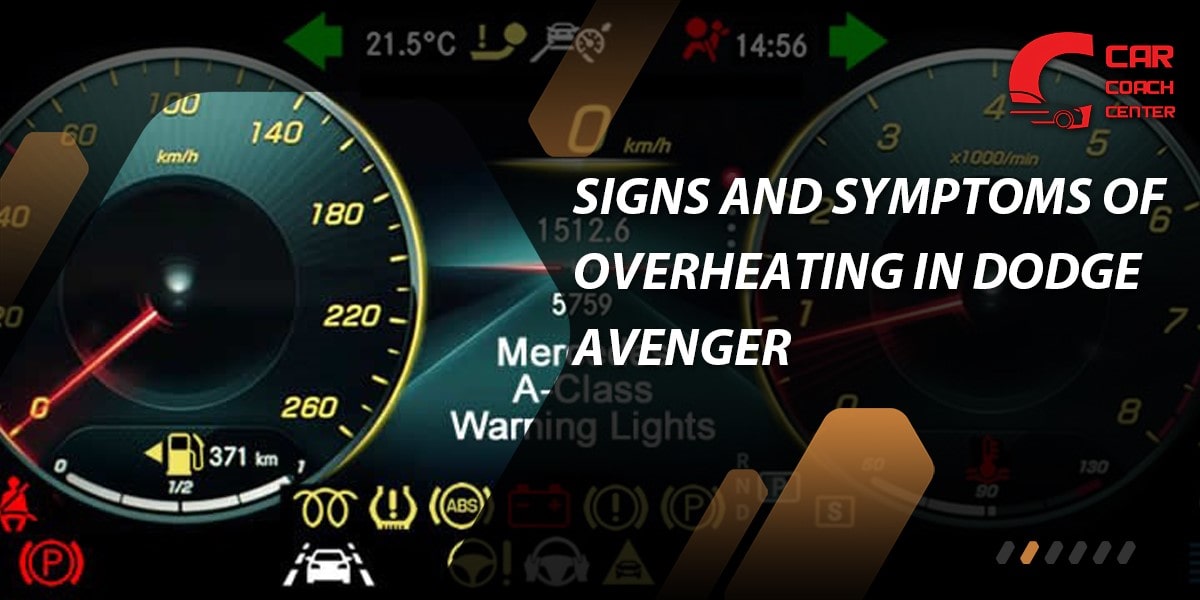
Signs and Symptoms of Overheating in Dodge Avenger
Temperature Gauge Fluctuations
Watch for unusual temperature gauge fluctuations, such as sudden spikes or consistently high readings.
Steam or Smoke from the Engine
Visible steam or smoke coming from the engine compartment is a clear indication of overheating.
Strange Smells or Leaks
Unusual smells, such as a sweet or burning odor, or coolant leaks under the vehicle, may suggest an overheating issue.
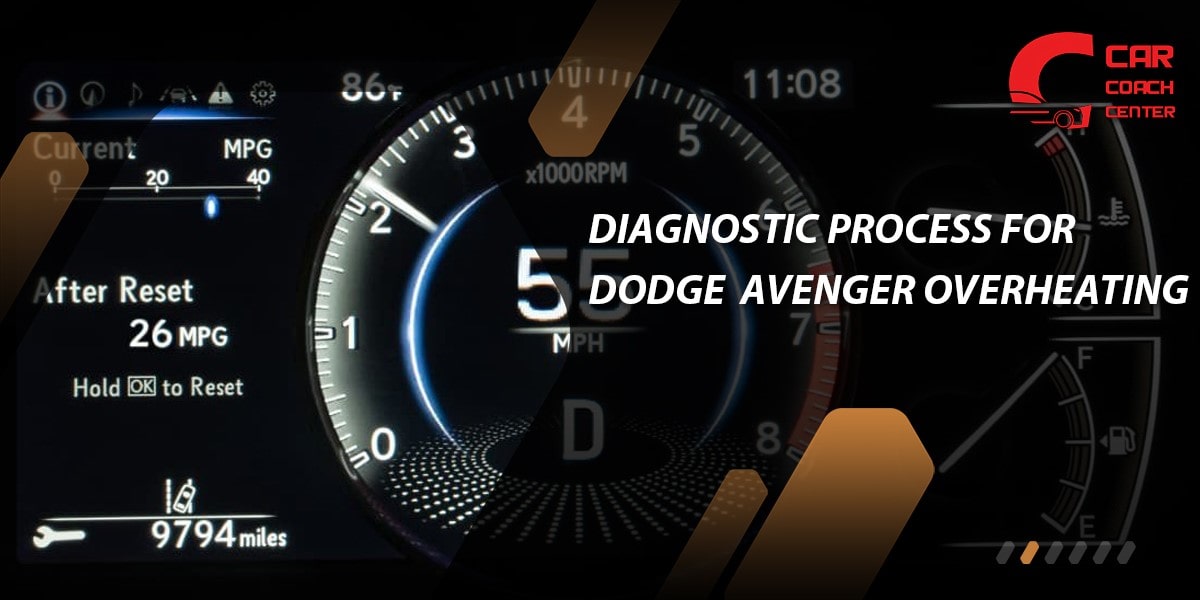
Diagnostic Process for Dodge Avenger Overheating
To effectively diagnose the cause of overheating in your Dodge Avenger, follow these steps:
Checking Coolant Level and Quality
. Park the vehicle on a level surface and allow the engine to cool completely.
. Open the hood and locate the coolant reservoir. Check the coolant level and ensure it’s within the recommended range.
. Inspect the coolant quality for signs of contamination or discoloration. Healthy coolant should appear clear and vibrant.
Inspecting Belts and Hoses
. Examine the belts connected to the water pump, radiator fan, and other components. Look for signs of wear, cracks, or looseness.
. Inspect the hoses for leaks, bulges, or deterioration. Pay close attention to connections at the radiator, water pump, and engine block.
Testing the Radiator Cap and Pressure
. With the engine cool, remove the radiator cap carefully and inspect it for damage or excessive wear.
. Use a pressure tester to check the radiator cap’s pressure release valve. It should open at the specified pressure.
. Test the cooling system pressure using the pressure tester to identify any leaks or abnormalities.
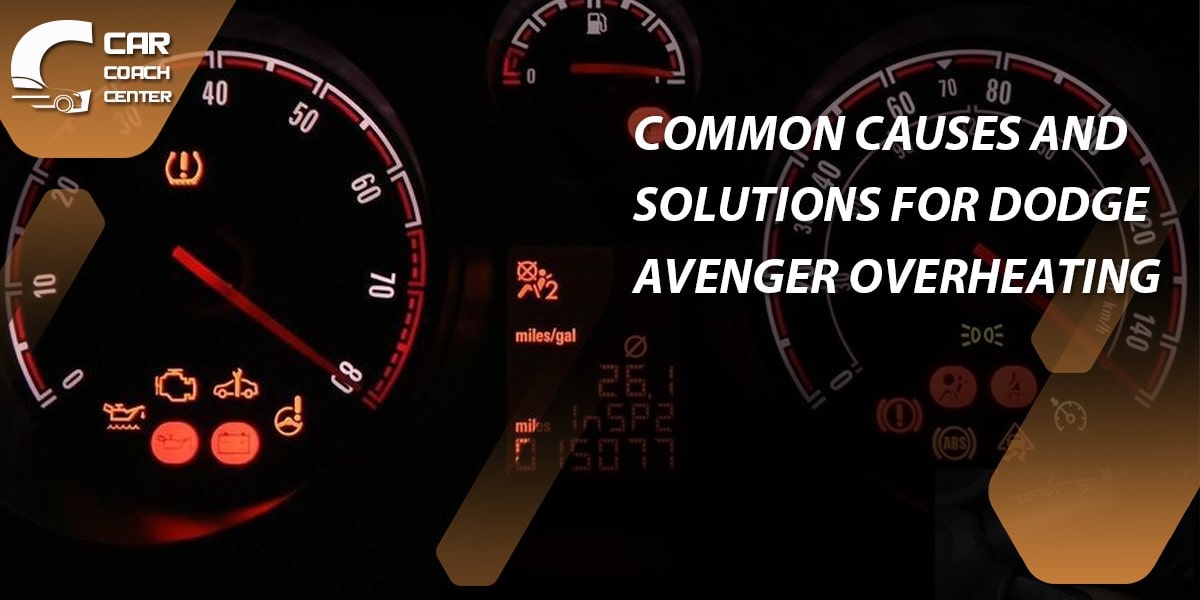
Common Causes and Solutions for Dodge Avenger Overheating
Insufficient Coolant or Coolant Leaks
. Identifying and Fixing Leaks
– Inspect all coolant hoses, connections, and the radiator for leaks.
– Replace damaged or worn-out hoses and repair any leaks found.
– Ensure proper coolant filling and bleeding procedures are followed.
. Coolant System Flushing and Refilling
– Flush the cooling system to remove any contaminants or debris.
– Refill the system with the appropriate coolant mixture as recommended by the manufacturer.
Malfunctioning Thermostat
. Testing and Replacing the Thermostat
– Remove the thermostat and test it in a hot water bath to check if it opens and closes properly.
– If the thermostat is faulty, replace it with a new one following the manufacturer’s instructions.
Faulty Water Pump
. Signs of Water Pump Failure
– Look for coolant leaks around the water pump.
– Listen for unusual noises coming from the pump.
– Monitor the engine temperature to ensure it stays within the normal range.
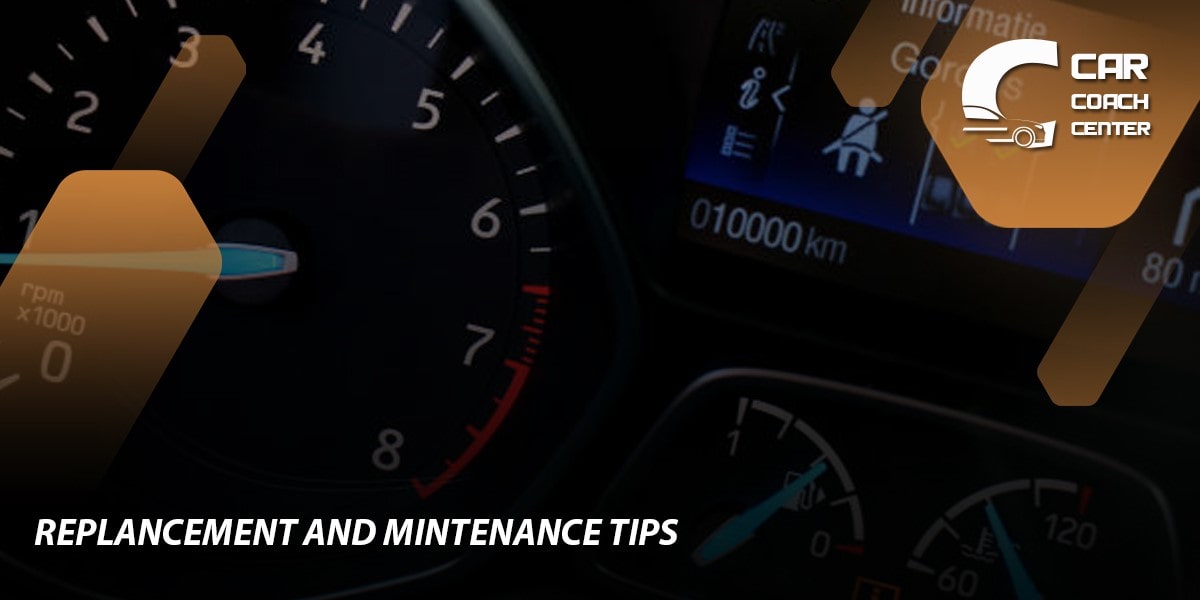
. Replacement and Maintenance Tips
– If the water pump is faulty, replace it with a new one.
– Consider replacing the timing belt along with the water pump if they share the same service interval.
– Regularly inspect and maintain the water pump to prevent future issues.
Cooling Fan Issues
. Electric Fan Troubleshooting and Repair
– Check the electric fan for proper operation by turning on the vehicle and observing if the fan engages when the engine reaches operating temperature.
– Inspect the fan motor, wiring, and relays for any signs of damage or malfunction.
– If the electric fan is not functioning correctly, replace the faulty components or the entire fan assembly if necessary.
. Mechanical Fan Inspection and Repair
– For vehicles equipped with a mechanical fan, visually inspect the fan blades, clutch, and pulley for any signs of damage or wear.
– Ensure that the fan rotates freely when the engine is off.
– Replace any worn-out or damaged components for optimal cooling performance.
Radiator Problems
. Cleaning and Flushing the Radiator
– Carefully clean the radiator fins using a soft brush or compressed air to remove dirt, debris, and insects.
– Perform a radiator flush to eliminate built-up sediment and contaminants.
– Consider using a radiator cleaner additive to improve overall cooling system efficiency.
. Repairing or Replacing the Radiator
– Inspect the radiator for leaks, corrosion, or physical damage.
– Minor leaks can be repaired using a suitable radiator sealant.
– If the radiator is severely damaged or corroded, it may need to be replaced with a new one.
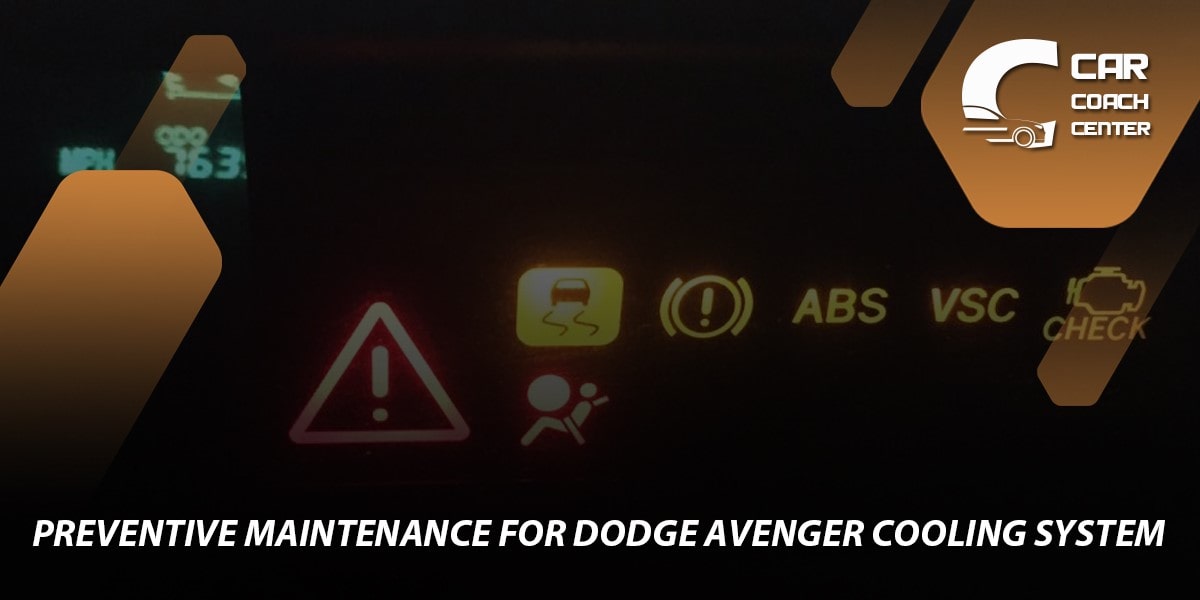
Preventive Maintenance for Dodge Avenger Cooling System
Regular Cooling System Inspections
– Schedule routine inspections of the cooling system components, belts, and hoses.
– Look for signs of leaks, wear, or damage and address them promptly.
– Check the coolant level and quality regularly.
Coolant Replacement and Flushing
– Follow the manufacturer’s recommended intervals for coolant replacement.
– Flush the cooling system periodically to remove debris and contaminants.
– Use the appropriate coolant type and mixture as specified by the manufacturer.
Proper Engine Maintenance and Care
– Maintain the recommended oil change intervals and use the right viscosity oil.
– Keep the engine properly tuned and ensure all systems are functioning optimally.
– Avoid overloading the vehicle, as excessive weight can strain the cooling system.
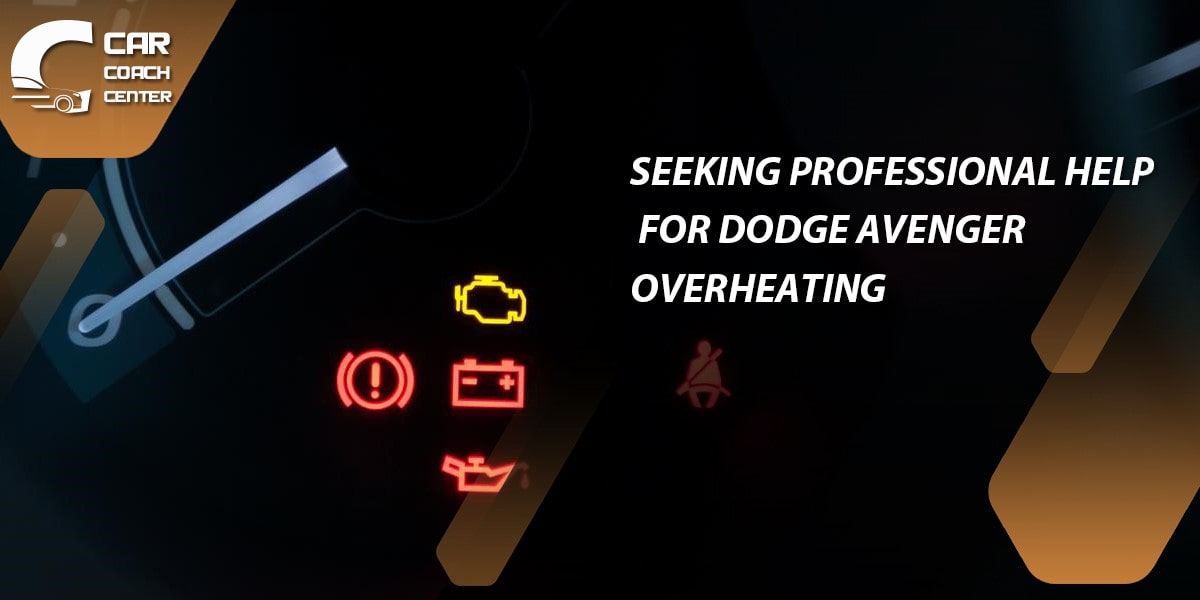
Seeking Professional Help for Dodge Avenger Overheating
When to Consult a Mechanic
– If you are unable to diagnose or fix the overheating issue on your own, it’s advisable to seek professional assistance.
– When the problem persists despite attempts to resolve it or if you lack the necessary tools and expertise, a mechanic can provide accurate diagnosis and repairs.
Choosing a Reliable Automotive Service Provider
– Research and select a reputable automotive service provider with experience in Dodge vehicles.
– Look for certified technicians who specialize in cooling system repairs.
– Read customer reviews and ask for recommendations to ensure quality service.
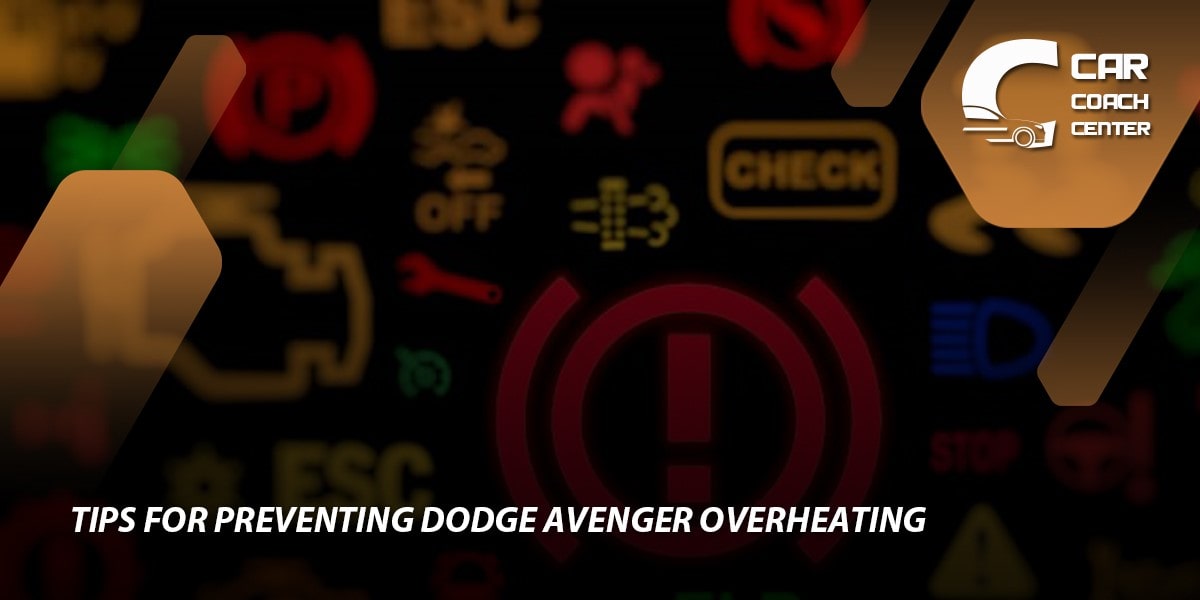
Tips for Preventing Dodge Avenger Overheating
To avoid potential overheating issues in your Dodge Avenger, follow these essential tips:
Proper Driving Habits and Avoiding Overloading
– Avoid aggressive driving and excessive idling, as they can put a strain on the cooling system.
– Do not overload the vehicle with excessive weight, as it can lead to increased engine heat.
Monitoring Temperature and Warning Signs
– Keep an eye on the temperature gauge while driving and promptly address any fluctuations.
– Be vigilant for warning signs such as steam, smoke, or unusual smells, and take immediate action.
Regular Maintenance and Inspections
– Adhere to the manufacturer’s recommended maintenance schedule for your Dodge Avenger.
– Regularly inspect and replace worn-out belts and hoses.
– Ensure the cooling system components, including the radiator and fans, are clean and in good condition.
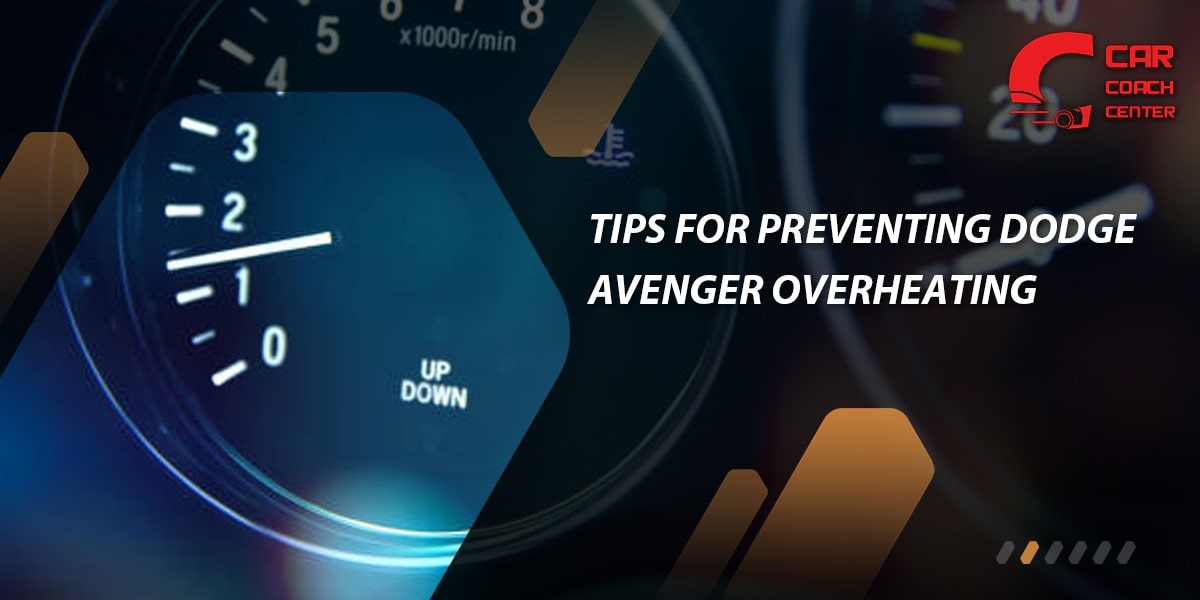
Conclusion
In this comprehensive guide, we have explored the causes, diagnostic process, and solutions for Dodge Avenger overheating issues. By understanding the importance of the cooling system, conducting proper diagnostics, and addressing common causes, you can effectively prevent overheating and ensure optimal performance of your Dodge Avenger.
Regular maintenance, such as coolant replacement, flushing the system, and inspecting cooling system components, is vital for preventing overheating. Additionally, practicing proper driving habits, monitoring temperature, and seeking professional help when needed contribute to a well-maintained vehicle.
Remember, CarCoachCenter.com is your trusted source for automotive guidance and expertise. By following these tips and implementing preventive measures, you can keep your Dodge Avenger running smoothly and enjoy a reliable and efficient driving experience.
FAQ
Why is my Dodge Avenger overheating?
Possible causes include low coolant levels, a malfunctioning thermostat, or radiator problems.
How can I prevent Dodge Avenger overheating?
Maintain proper coolant levels, inspect cooling system components regularly, and drive responsibly.
When should I seek professional help for Dodge Avenger overheating?
Consult a mechanic if the issue persists or if you are unable to diagnose and fix the problem yourself.

